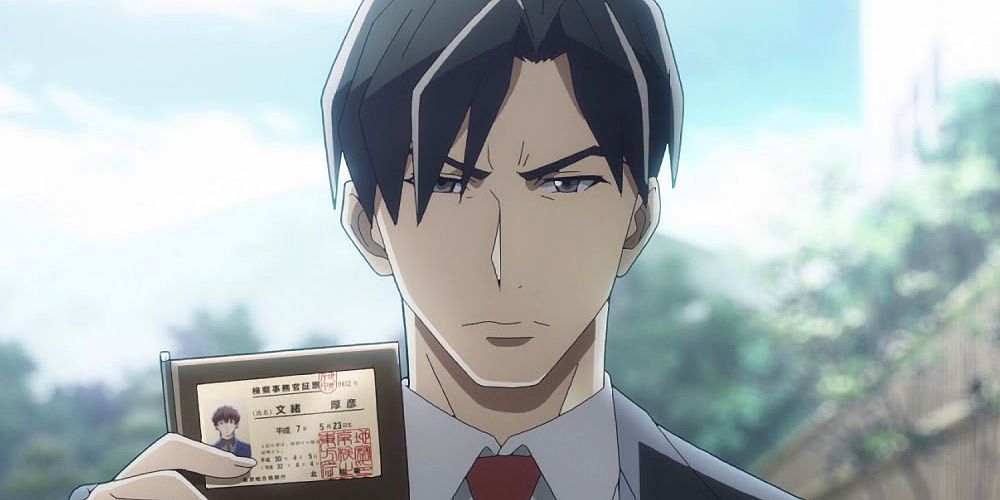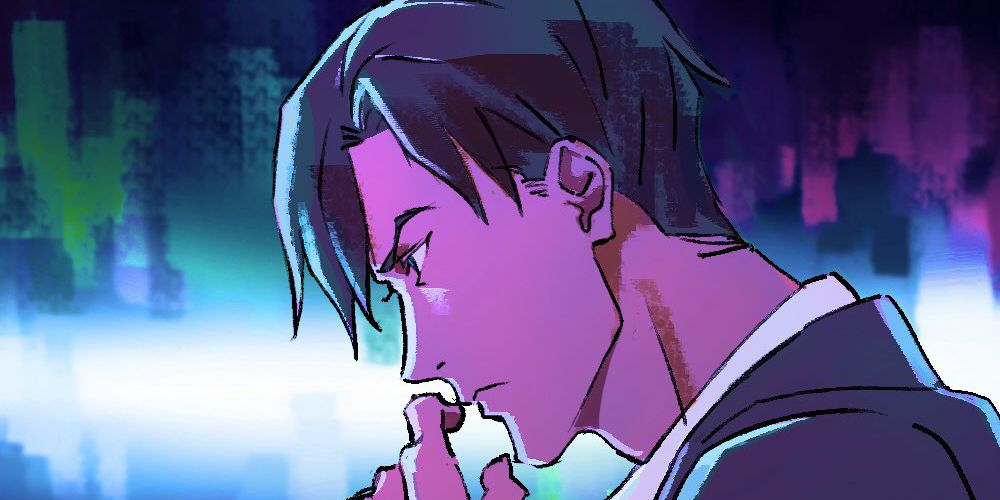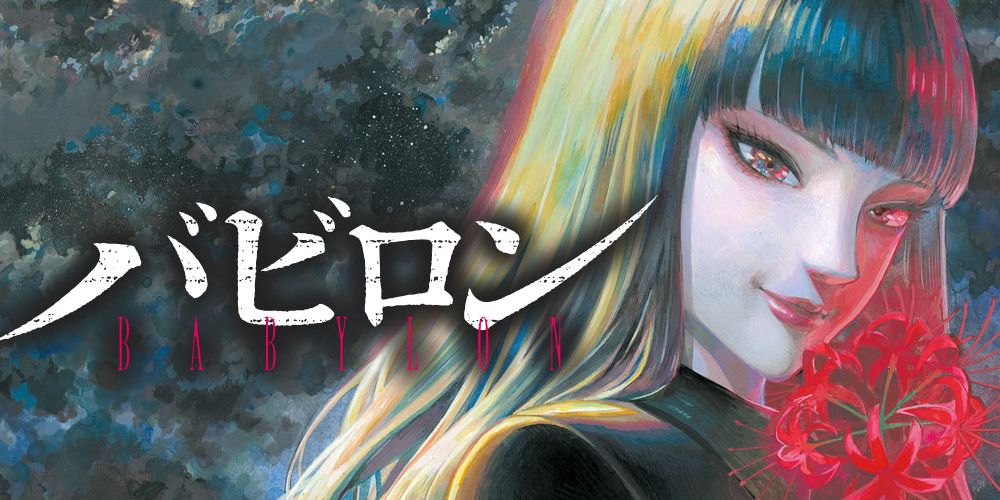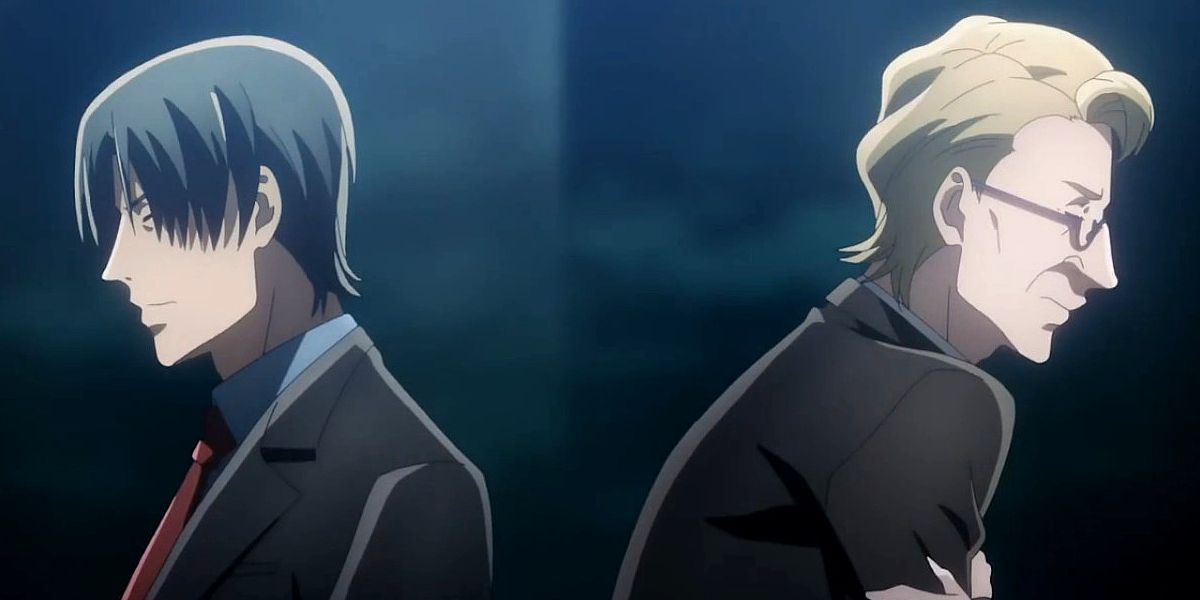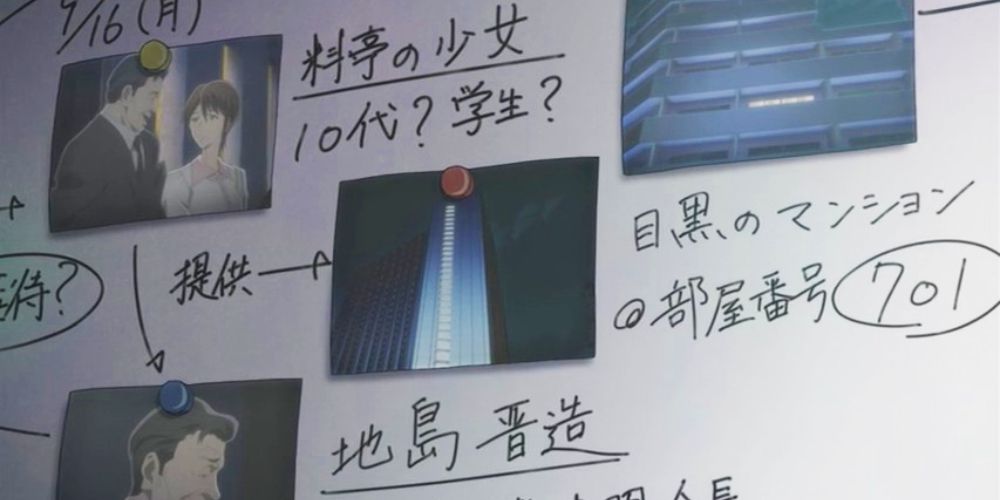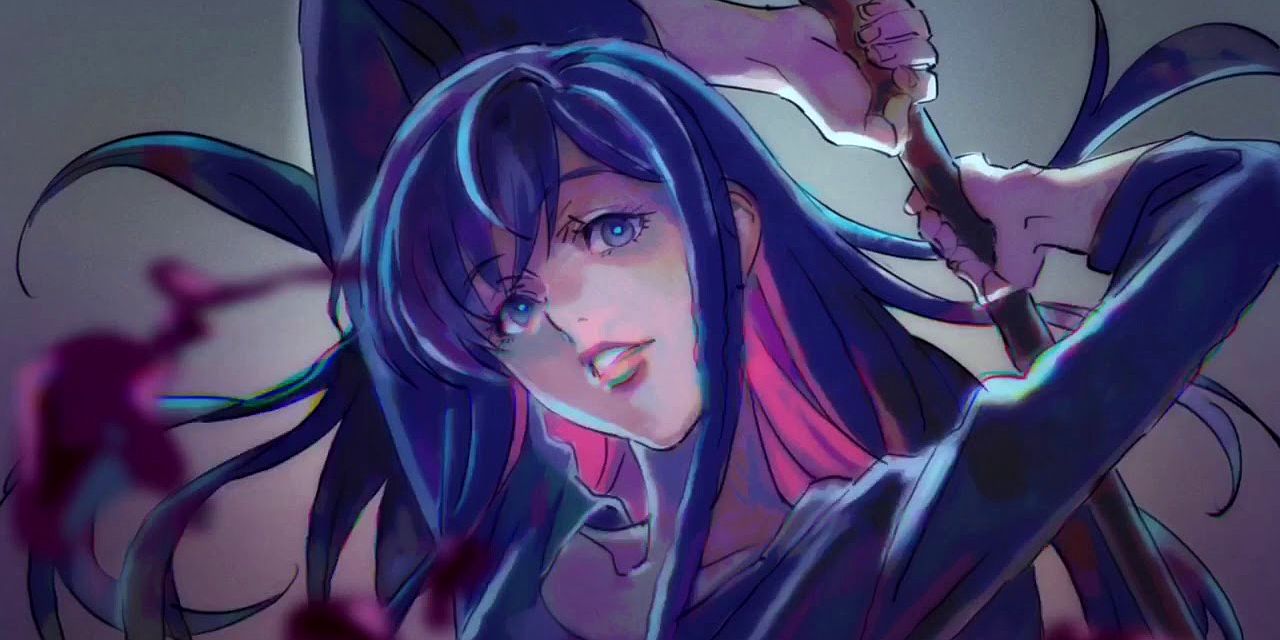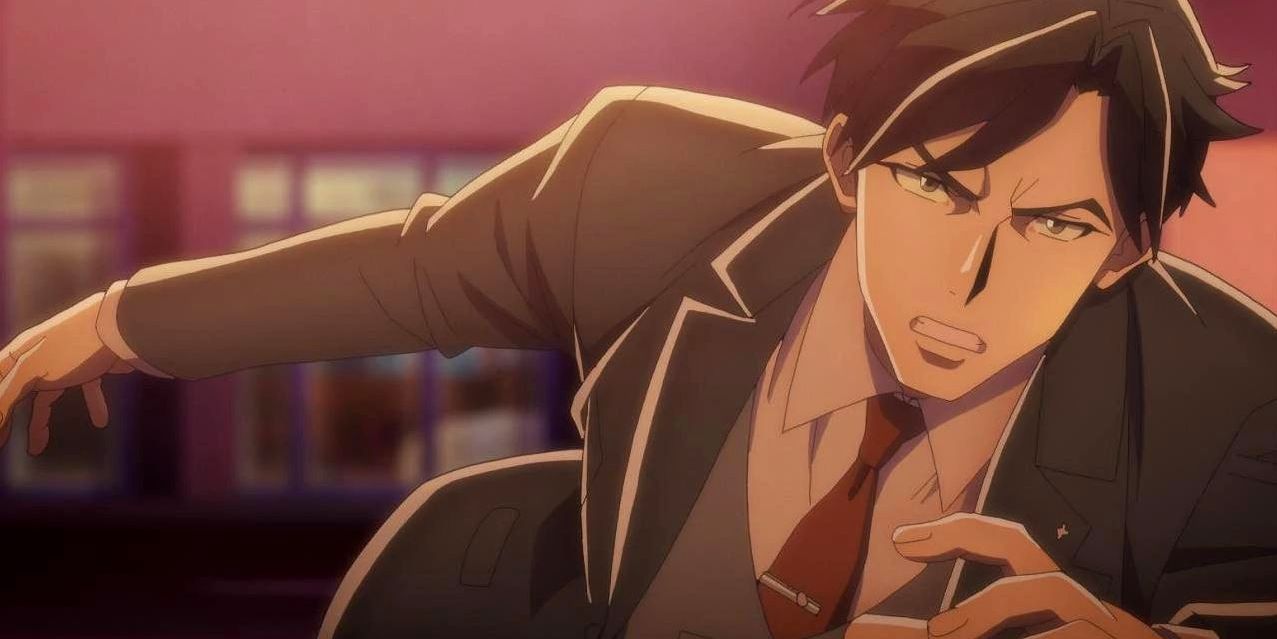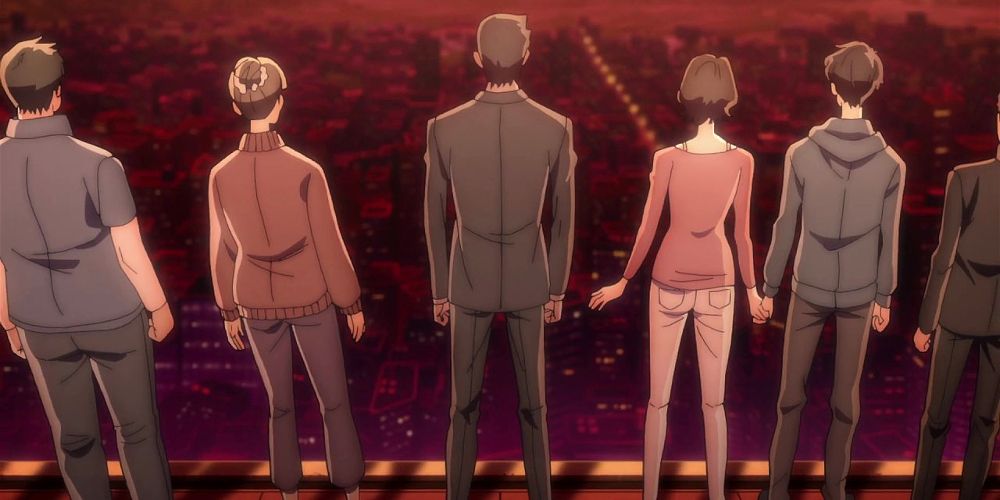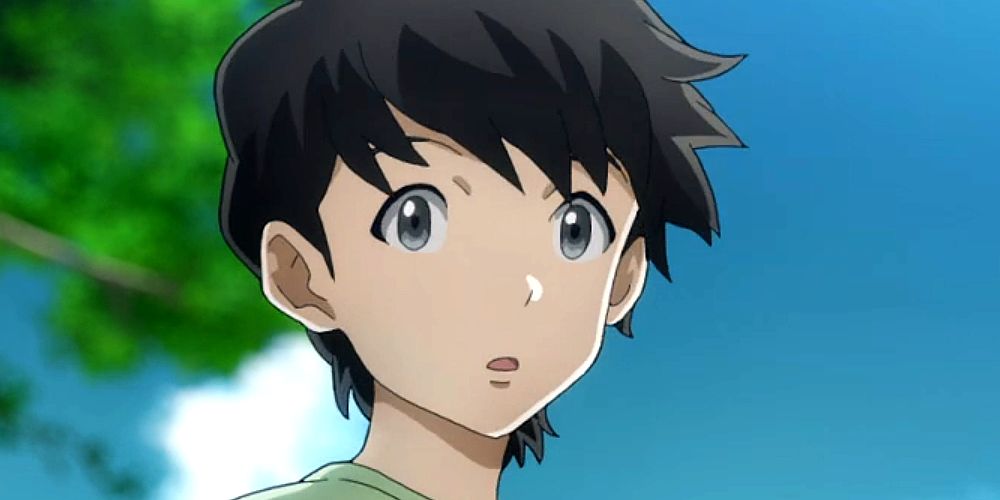Adapting books for television has become an art form all its own. Production companies routinely face tough creative choices when determining what stays on the printed page and what transitions to the silver screen. Sometimes, the very thing which makes an IP work in one medium is inherently at odds with its cinematic counterpart. In all cases, the challenge remains the same: Visualize a pre-existing story in a way that entertains audiences while staying true to the spirit of the source material. This is no exception for Amazon's release of Babylon last January, a brand new anime series based on Mado Nozaki’s thriller novels by the same name.
So how does the adaptation stack up against the original book series? Here are five similarities and five differences between Babylon and the novels it's based on. WARNING: The following list contains SPOILERS as well as topics of suicide and self-harm. Reader discretion advised.
10 Similarity: The Hero
The story of Babylon follows public prosecutor Zen Seizaki, a man burning with righteous indignation. Zen is smart, successful, good-natured, a family man, and seeks to dispense justice wherever justice is needed.
While his colleagues might see the world in shades of gray, Zen takes a black and white view of morality – a portrayal that is consistent in the book series and television show. And it is this worldview which will be challenged to the core as Zen plunges headlong into the dark world of pharmaceuticals, prostitution, and politics.
9 Difference: The Hero's Arc
One of the starkest differences between the book series and the anime deals directly with Zen's own arc. Originally, author Mado Nozaki planned for his protagonist to be a morally righteous man whose values are challenged at every twist and turn, but one who ultimately stays true to his convictions in the end.
In the anime, Zen's character starts similarly, however over the course of the show begins a path towards the dark side, resulting in the killing of President Alexander Wood. The show's Zen follows a classic fall from grace structure that turns in him into the very thing he hates in order to accomplish what he believes is right.
8 Similarity: The Villain
If Zen Seizaki is portrayed as the embodiment of pure good, then Ai Magase, the series antagonist, is the story's emblem of absolute evil. In both the book and anime, Magase is the supreme puppet master manipulating the overarching conspiracy and is as ruthless as she is charismatic. Her plan? Secure the nomination of a promising young politician and globalize the Suicide Act, making the death-inducing drug Nyux legal.
To accomplish this, Magase seduces people into killing themselves in all sorts of brutal ways, using their deaths as a means to influence Japanese legislators. Not only this, but Magase is also a master shapeshifter and continually changes her appearance, making it seem as if she has preternatural powers at her disposal. And when she's not playing political theater or influencing people to take their own lives, Magase enjoys tormenting Zen at every turn of his investigation.
7 Difference: The Demise Of President Wood
Another glaring difference between Babylon the book series and Babylon the anime is the death of US President Alexander Wood. In both versions, Zen confronts President Wood after learning he plans to implement the recently ratified Suicide Law, the controversial policy at the core of the story’s plot, in the United States.
In the anime, Zen fatally shoots the president in order to stop the spread of the law abroad, while in the book President Wood commits suicide instead. Either way, it is Ai Magase pulling the strings from behind the scenes.
6 Similarity: The Plot
As stated above, in many cases of print-to-film adaptation, story elements must be reconfigured or cut in order to work within a visual medium. Funnily enough, this was done to a minimum in Babylon. One major commonality between the books and anime series is just how much was kept the same. The greatest of these is the near beat-for-beat development of the plot, which kicks off when Zen Seizaki uncovers a suspicious memo containing bloodstains, human skin, and the letter F.
Set in the fictional Shiniki District, where radical policies are tested on a small sample population, Zen soon finds himself waist-deep in a ring of conspiracy surrounding a large pharmaceutical company. The further Zen investigates, the deeper down the rabbit hole he goes as a string of suicides suddenly rip across the city. Deaths Zen suspects might actually be murder.
5 Difference: The Villain
Another interesting modification is the way the anime handles Ai Magase’s abilities in comparison to the books. In the novels, the mistress of mayhem is merely a master of disguise with a highly developed charm that brings any mark under her influence. But despite her expert-level manipulation skills, they are only that: skills.
In the anime, her abilities are portrayed as supernatural, making her thematic representation of the Whore of Babylon more literal than symbolic. Whether Amazon’s take on Magase’s powers is intended that way or not, the answer is left up to the viewer.
4 Similarity: The Cliff Hanger Ending
One of the biggest criticisms levied against Babylon is that the ending leaves too many loose threads untied. So much so that the book's publisher, Kodansha Taiga, requested author Mado Nozaki write a fourth novel just to properly complete the story. In this regard, Amazon’s animated retelling is no different.
Both versions of the thriller abruptly cut off during the final confrontation, making it unclear as to what becomes of the story's protagonist, whether or not the villain wins, or what will happen now that the Suicide Law is in full effect in Japan. Will there be a fourth novel to answers these burning questions? Only the author truly knows.
3 Difference: Yep, The Cliff Hanger Ending
While it's true both the book and anime versions of Babylon abruptly end during the final confrontation, the way that confrontation plays out is quite different. In the book, while Zen holds Ai Magase at gunpoint, she notes a photograph of Zen’s wife and child tucked into his breast pocket. Throwing him a playful smirk, she turns and walks away from the scene, leaving the prosecutor impotently looking on.
In this version, Zen is totally disarmed by Magase’s influence. The anime, however, plays out another way. In the anime, Zen also holds Magase at gunpoint, but this time the screen suddenly cuts to black, followed by the sound of a gunshot. Whether that gunshot was intended for Ai Magase or Zen himself remains to be seen.
2 Similarity: The Themes
The story of Babylon tackles some pretty heavy philosophical, moral, and ethical concepts such as suicide, euthanasia, and good vs. evil. These themes are either embodied in the characters themselves or raised in the conflicts they face. Even the name Zen translates as "good" in Japanese.
Conversely, the name Magase also translates as the word "evil". Questions like “What is good?” or "What is Evil?" are present at every turn. When it comes to comparisons, the two versions are identical in this, reaching for something more than mere escapism. Babylon aims to comment on relevant issues facing society today.
1 Difference: The Post Credits Scene
In a post-credits scene at the end of the final episode titled "The End", the young son of Zen discovers a straw hat laying on the ground. The boy picks up the hat and returns it to a woman who's just arrived at a nearby bus stop. That woman? Ai Magase. This scene was created uniquely for the anime and is found nowhere in the book. It also reveals that Magase somehow escaped the final showdown.
As for the fate of Zen? There is no indication as to whether Zen is also alive or indeed dead. Furthermore, it appears the child is alone, his mother nowhere to be found. What could this mean beyond Magase's survival? Only time will tell.


